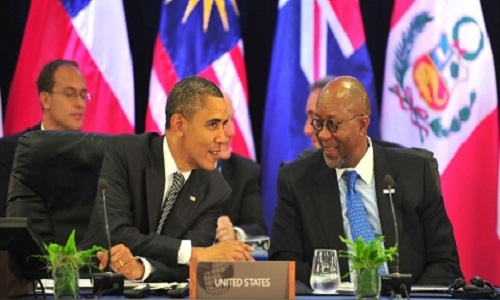"As US and parts of Europe gears up for elections, the timeline for the much anticipated Transatlantic Trade and Investment Partnership (TTIP) between EU and the US, seems to get pushed further. As per Hong Kong Trade Development Corporation (HKTDC), the US and the EU together account for 47 per cent global GDP and 29 per cent of world trade and the TTIP is undoubtedly the world’s largest trade and investment agreement. Despite Brexit, both US and EU indicate 2016 as the timeline. "

As US and parts of Europe gears up for elections, the timeline for the much anticipated Transatlantic Trade and Investment Partnership (TTIP) between EU and the US, seems to get pushed further. As per Hong Kong Trade Development Corporation (HKTDC), the US and the EU together account for 47 per cent global GDP and 29 per cent of world trade and the TTIP is undoubtedly the world’s largest trade and investment agreement. Despite Brexit, both US and EU indicate 2016 as the timeline. Hence, if the deal is concluded TTIP will be the key to strengthen transatlantic trade and investment link, providing a major boost to economies on both sides.TTIP and its relevance for the US, EU

TTIP is an ambitious, comprehensive and high-standard bilateral trade and investment agreement aimed at creating opportunities for businesses, workers and farmers on both sides of the Atlantic. It is intended to boost transatlantic trade and investment linkages at a time of modest economic growth by eliminating customs duties, removing or greatly reducing red tape and tearing down barriers that impede trade both in goods and services. This in turn is expected to add new employment opportunities to the existing 13 million plus jobs that are supported by transatlantic trade and investment.
The US is already the EU’s largest export market and its largest source of FDI, while the EU is the US’s second largest market (after Canada) and also its largest source of FDI. TTIP's eventual impacts on both transatlantic and global economic growth and investment will undoubtedly be very substantial. Although there have been advanced talks, the process has faced opposition in EU from consumer, environmental, labour and other civil society groups who strongly believe TTIP would lessen or outright dismantle EU protections and standards. There also appears to be a growing scepticism towards free trade in the US as the presidential campaign heats up.
Moreover Brexit may not have an immediate impact on the EU negotiating position but the impact of British departure will increase gradually. As a strong supporter of trade liberalisation, the UK could have been expected to act as a facilitator during the negotiations and its absence is likely to make a final deal harder to achieve as certain EU members may feel more emboldened to make tougher demands in various areas that may not be acceptable to the US. Post Brexit , it is believed that the overall value of TTIP for the US will diminish somewhat if the UK is taken out of the equation as UK is the largest market for US exports in the EU, taking up the lion’s share of more than 20 per cent of total shipments to the EU in 2015.
TTIP’s implication on global trade rules
The impact of TTIP would probably be moderate over the short term as new rules and regulations are likely to be phased in gradually. However, its longer-term implications are expected to be significant. An Ecorys report projects GDP to be 0.5 per cent higher each year for the EU and 0.4 per cent higher for the US after TTIP is fully implemented. Meanwhile, wages for both high- and low-skilled workers are expected to go up by 0.5 per cent in the EU, compared with 0.3 per cent for high-skilled workers and 0.4 per cent for low-skilled workers in the US. Total EU and US exports are expected to increase by 8.2 per cent and 11.3 per cent respectively, with a 27 per cent increase in EU exports to the US and an almost 36 per cent gain in US exports to the EU.
TTIP also has long term impact on multilateralism and global trade rules as it represents an unprecedented effort to complement traditional tariff liberalisation with broad-ranging commitments on regulatory co-operation and a joint rules-based framework for bilateral trade and investment. TTIP will thus boost global trade rules for decades to come depending on the level of ambition of US-EU regulatory cooperation and coherence efforts which can result in globally-prevalent regulations and standards.












